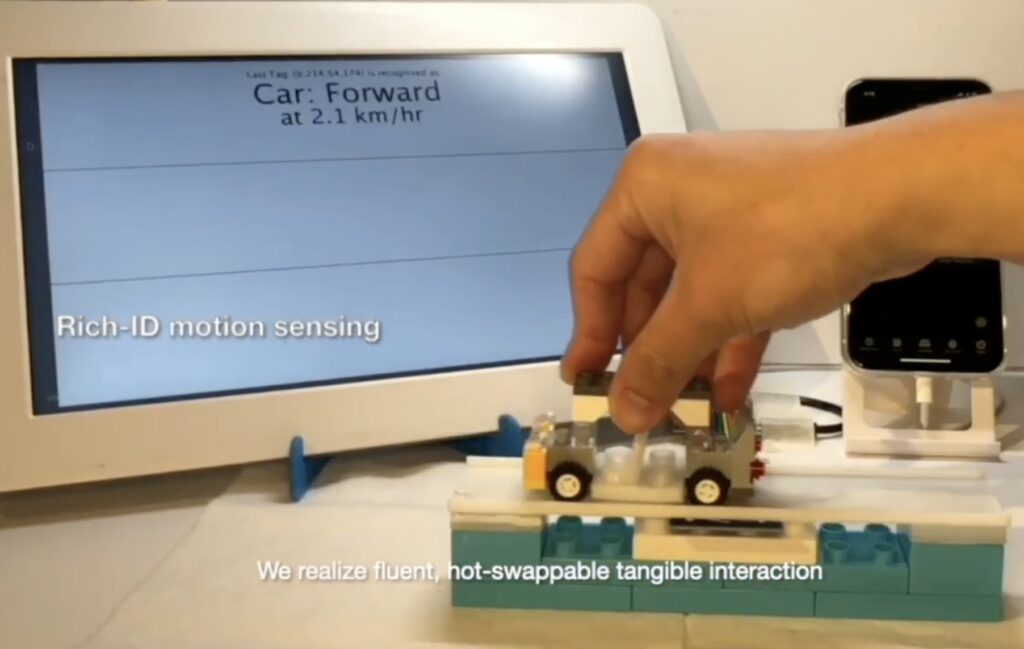
NFC (Near-Field Communication) technology is generally used for identification, because NFC tags can carry a substantial amount of data, like a unique identifier or a text file, without a battery. But NFC readers are capable of reading tags quite quickly, which is a feature that is largely ignored. NFCSense, created by Rong-Hao Liang and Zengrong Guo, takes advantage of that read speed to detect the movement of objects.
NFCSense only requires a computer, an Arduino Uno board, a cheap RC522-based NFC/RFID reader, and a few NFC tags. It works a lot like a Hall effect sensor by detecting the presence of an NFC tag and using that to calculate the movement of an object. For example, if you attach an NFC tag to the wheel of a bicycle, you can calculate the bicycle’s movement speed by counting how much time passes between moments that the tag is detectable.
The advantage of using NFC, when compared to a Hall effect sensor and magnet, is that each tag is identifiable. That means that NFCSense can differentiate between individual tags. It can monitor the movement of a virtually unlimited number of objects or provide better resolution of singular objects. If the entire perimeter of a wheel were lined with NFC tags, NFCSense could detect the rotational angle of the wheel at any given time.
Rong-Hao Liang and Zengrong Guo have made the NFCSense API open source, so you can experiment with it yourself.
The post NFCSense can detect the movement of objects using only NFC tags appeared first on Arduino Blog.
No comments:
Post a Comment